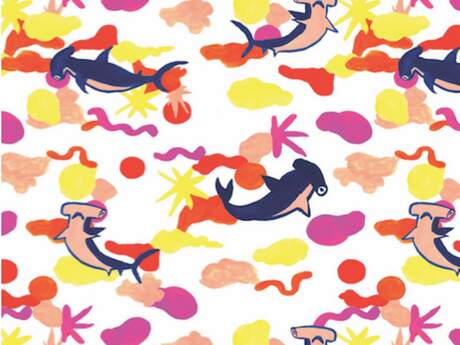Q & A: Chapbook Publishers
Bianca Stone on Monk Books
As part of the THE NYC/CUNY CHAPBOOK FESTIVAL on Thursday, April 2 from 10AM – 7PM at The Graduate Center, CUNY, we are presenting interviews with some of the chapbook publishers who will be taking part in the festival.
Bianca Stone is a poet and visual artist. Her books include the poetry collection Someone Else's Wedding Vows (Tin House/Octopus Books 2014), and Antigonick, a hybrid collaboration with Anne Carson (New Directions 2012). She is co-founder and editor of the press Monk Books, and she runs the Ruth Stone Foundation in Vermont and Brooklyn. The Selected Poetry Comics is forthcoming from Pleiades Books.
* * *
What is your own personal history with chapbooks? How did they first catch your interest?
I've always I loved making little books. It gave me endless pleasure growing up. My family were writers and I wanted to copy them. And the book form was always deeply revered. I never stopped loving making books. I was really into making zines in high school and college. I started making poetry chapbooks and poetry comic chapbooks more regularly as an adult, just to give at readings before I had a book out.
What made you first decide to start publishing chapbooks?
In grad school I started to really get a taste of the "professional" chapbook publishing world. Poets love slim volumes of things. And a chapbook is the slimiest of the slim volume of poetry. It's comforting to us to have it be tight, and quick. My friend Adam Fitzgerald and I wanted to start a press so we could publish some of Mark Strand's letters, but then I convinced him to let us publish some of his prose poems. We started making chapbooks because we loved the poetry that was happening. We wanted to see what it would be like to edit, to create someone else's books. To push forward the poetry we loved--from established AND unestablished poets. Both sides need attention sometimes. Now working with Ben Pease, my husband, it's really great. Because the communication between us is constant.
Could you talk a little bit about your own process of making and publishing chapbooks?
Unlike a lot of other cool presses, we actually don't hand-make our books. We get them perfect-bound from a small printer. So really the process is a lot like a full-length book; layout, design, etc. We end up publishing people whose work we know and love.
What is unique about the chapbook form, or why chapbooks and not book-books?
The chapbook will always be conscious of its size, and availability. It embraces smallness, brevity, and care. It is humble, and beautiful.
Do you have recent favorite chapbook from another press?
I loved the Rachel B. Glaser and John Maradik's prose chapbook, PEER CONFESSION, from New Herring Press. Brilliant.
What does it mean to the chapbook and experimental publishing community to come together and compare projects once a year at the CUNY Chapbook Festival?
Everything. Since chapbooks, given their virtually universal small-print-run-status, don't get the same advertising. So there has to be outlets in which to share them. There's camaraderie, a sisterhood, to the community of chapbook makers and buyers. It's very important to have events where you can show what you've made in the flesh, to be able to touch the books. Writing and publishing is a private act. This allows for the very needed extroversion of the clans.
More Q & A: Chapbook Publishers
Rob Schlegel on The Catenary Press
In college, I made chapbooks and gave them away to family and friends. I loved every part of the process, but especially writing the poems and figuring out how to orient them on the page and then making the paper pass happily through the printer. I also loved designing my own covers with fancy paper from a local office-supply store called Oregon Stationers.
Read ArticleKit Frick on Black Lawrence Press
I was first introduced to chapbooks in college. One of my first poetry professors, Jeffrey McDaniel at Sarah Lawrence College, brought a few from his personal collection into one of our workshops. What I loved most about chapbooks right from the start was how different and special they all were. Saddle-stitched, perfect bound, glue-gunned and stapled, you name it. They were everything I loved about books: you could tell they were a real collaboration between the author and the press. There was something immediately special about them.
Read Article

 NAVIGATIONAL CLOUDS
NAVIGATIONAL CLOUDS

